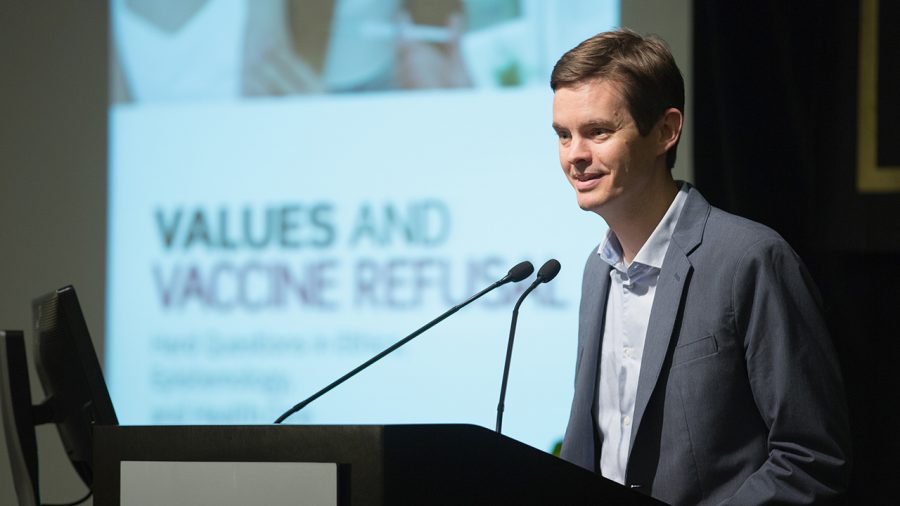Professors co-author article about vaccinations
The issue of vaccinations is a sensitive topic that is becoming more politicized. Mark Navin, Ph.D. and chair of philosophy, and Jason Wasserman, Ph.D. and an associate professor in the Department of Foundational Medical Studies at Oakland University, have co-authored an article for “Pediatrics.”
“Pediatrics” is the official journal produced by the American Academy of Pediatrics and is the professional society for pediatricians in the U.S.
The two from OU also worked with Douglas J. Opel, M.D., an associate professor of pediatrics at the University of Washington’s School of Medicine.
Their article focuses on physicians that are not accepting families that refuse vaccinations for their children.
“My co-authors and I think that this is generally wrong, from a moral point of view, and we think this practice is not covered by existing guidance from the American Academy of Pediatrics or the American Medical Association,” Navin said.
Since 2016, it has been considered acceptable for physicians to dismiss vaccines refusers. They noticed that a lot of pediatricians were not only dismissing the families that refuse to vaccinate, but not accepting them into their practice at all.
The thesis of the article is that refusing to treat vaccine refusing families entirely is fundamentally immoral. That the effort has to be made to help people and encourage proper vaccinations, instead of outright care refusal.
“In our minds, and the arguments we make in our article is that these are not equivalent,” Wasserman said. “We wanted to clarify that there’s a moral distinction between ultimately dismissing a vaccine refusing family after you’ve tried to get them to take up the vaccines and not accepting them into one’s practice in the first place.”
Vaccinations are currently a hot topic to talk about while the country is going through the COVID-19 pandemic. These recent outbreaks of diseases can cause more of an issue regarding this topic of discussion.
“This is evident in the context of the COVID-19 pandemic, and recent outbreaks of measles and other vaccine-preventable disease also illustrate the importance of widespread routine vaccination,” Navin said.
They believe that the urgency of our current situation demands physicians try to persuade families to become vaccinated, that physicians should be promoting vaccinations and educating the families that are refusing vaccinations.
“They should make all these good faith efforts to get these families to vaccinate,” Wasserman said. “If all of that fails and if that relationship is really at an end path, then it is an acceptable option to dismiss the family.”
They also argue that threatening to not accept families will not change their mind. That while some physicians are morally admirable, refusing families does not balance any of the moral obligations that a physician goes through.
As infectious diseases are on the rise and the public’s skepticism of the desperately needed COVID-19 vaccine continues to grow, Navin admits the current circumstances around vaccines hardly make the situation easy for physicians.
“It is not always clear how physicians should respond to vaccine hesitancy or refusal among patients or potential patients, in light of the many responsibilities that physicians have,” Navin said.




